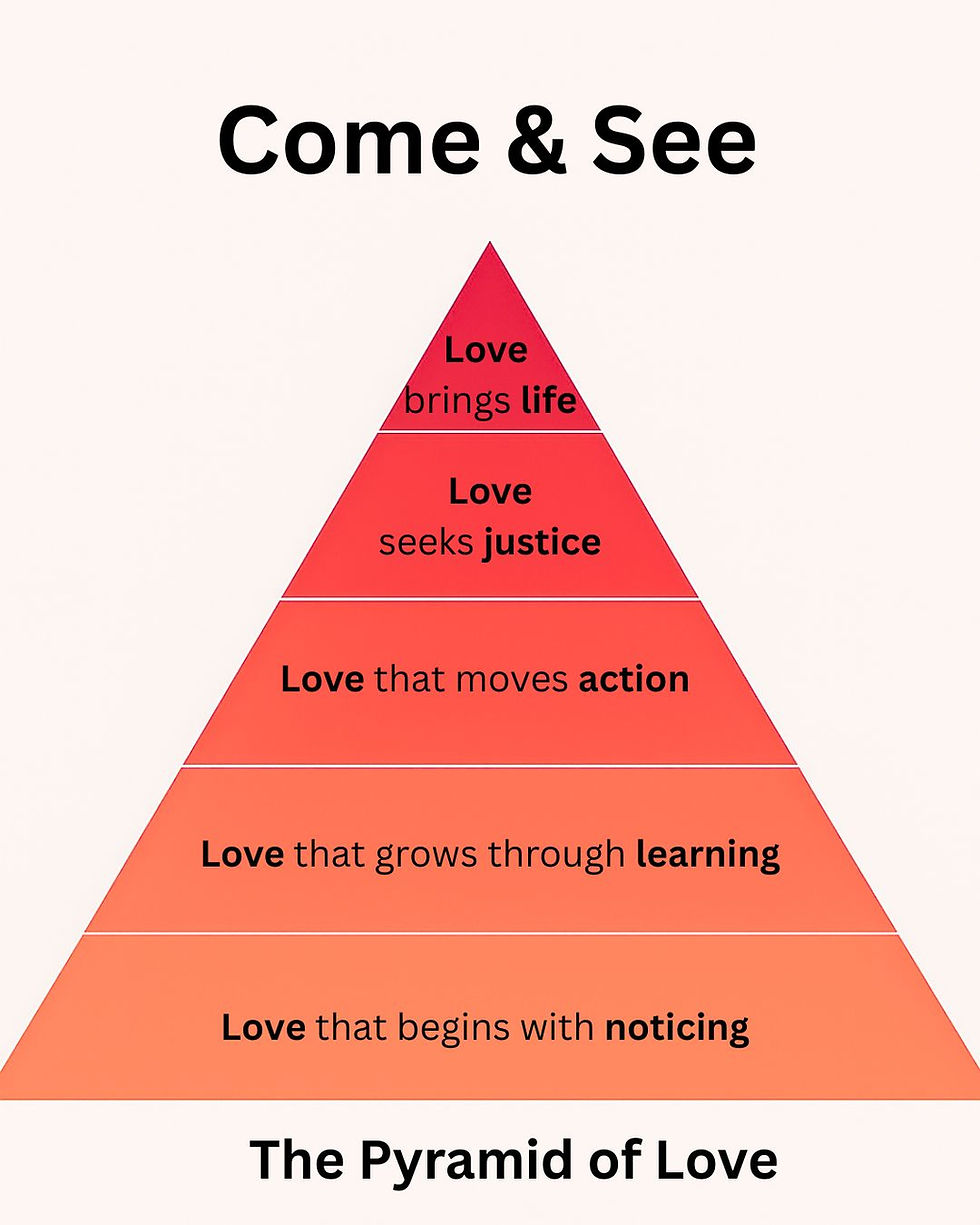Breakthrough Within: in between perception and conviction
- yikigai2021

- Apr 5, 2025
- 4 min read
4.6.2025
5th Mini Easter
[Texts]
Isaiah 43:16-21
Psalm 126
Philippians 3:4b-14
John 12:1-8

Lenten blessings to you, my dear siblings in Christ.
As we reflect on today’s Scripture readings, we find ourselves contemplating the tension in our Lenten journey once again from Ash Wednesday to Easter Sunday, from being ashes to living the new and resurrected life. Two words emerged in my reflections: perception and conviction.
Perception is a cognitive process. It allows us to make sense of the world and interpret how we experience it in its richness through sights, sounds, and sensations. It is shaped by personal emotions, experiences, and cultural context. Yet, while essential, perception often remains incomplete.
It is conviction that propels us beyond perception and draws us closer to God. Conviction transcends knowing or understanding; it is what we hold to be true. It is shaped by our personal encounter with God and rooted in Scripture. Conviction is a firm certainty, a foundation for our journey as people of faith, supported by the fulfillment of God’s promises through Jesus Christ.
When pondering these two words, I turned to the three biblical genealogical charts displayed by my desk. Two trace the lineage from Adam to Jesus, while the third reverses it, tracing from Jesus back to Adam. Each tells a unique story: one emphasizes the continuity of prophecy throughout the Bible, another highlights Scripture references, and the last associates biblical figures with dates.

Without these charts, it is hard for me to connect all the dots and how they relate to each other. These charts remind me of the God who sees all, knows all, and weaves everything together in God’s perfect saving plan through the life of Jesus.
As I reflected, I asked myself: How can we live as fully as we can that every decision we make now is going to enrich the lives of future generations and help them see their faith and ministries matter to God’s saving plan?
Certainly, not knowing Scripture won’t help us or anyone embrace God’s mission. Perhaps perception might help to a certain degree, even when we fail to see our own stories mirrored in the Bible. But most assuredly, it is conviction that if we surrender to God and follow Jesus’ footsteps, that will ensure the lives of our future generations filled with God’s blessings.
In today’s Gospel reading, John 12:1–8, we see a striking contrast between human perception and spiritual conviction. Judas, clouded by worldly desires, criticized Mary’s act of devotion, suggesting that the money could have been used to help the poor. His perspective likely resonated with others, as it sounded practical and certainly made them appear compassionate and concerned for the poor.
But Mary’s action was driven by profound conviction. Having experienced Jesus raising her brother, Lazarus, from the dead, which was recorded a chapter earlier, she understood Jesus’ significance and impending sacrifice. Her conviction compelled her to honor Jesus while there was still time, regardless of potential criticism.
What can we learn from Mary and Judas? Have there been times when we mistook our perception for conviction and caused division among siblings in Christ?
Two weeks ago, a colleague asked me to review his candidacy approval essay. This approval essay is a critical document used by the candidacy committee to determine whether a candidate is ready to be ordained as a minister within the ELCA.
After revising it together, he later called to point out that we had missed answering a question: “Why does the academic study of the Triune God matter to practical ministry?” He was also required to share how his relationship with Jesus had been deepened as a result. From that discussion, I realized that many faith practices are caught in the tension between perception and conviction. Let me share with you four examples.
Pentecostal and Charismatic Churches emphasize the gifts of the Holy Spirit, such as speaking in tongues, prophecy, and healing. While this perception may overshadow the roles of the Father and the Son, their conviction lies in the active ministry empowered by the Holy Spirit.
Evangelical and Baptist Churches focus on cultivating a personal relationship with Jesus Christ. While this perception can overshadow the roles of the Father and the Holy Spirit in daily ministries, their conviction is rooted in the transformative power of Jesus’s life.
Mainline Protestant Churches emphasize justice and ethics. While this perception may render the roles of the Son and the Holy Spirit distant or vague, their conviction lies in living out God’s love and justice.
Unitarian Movements reject Trinitarian doctrine, perceiving God as singular. This focus dims the relational dynamics of the Father, the Son, and the Holy Spirit. Yet their conviction lies in ethical living and moral clarity.
So, where do you find yourself, closer to the Father, the Son, the Holy Spirit, or the Triune God? Is your connection shaped by perception or rooted in conviction?
As we reflect on John 12, the story of Mary and Judas, let us also consider the prophet Isaiah’s call to perceive God’s great works and Paul’s journey in Philippians 3, from the perception of his old self to the conviction of a new life in Christ.
What lies in the tension between your perception and conviction? How can that bring you closer to the Triune God, enabling you to live the new resurrected life fully?
May we, like Mary, act with bold conviction and overflowing love for Christ. And may our faith stories reflect Paul’s conviction, calling us, as the body of Christ, to live the new resurrected life, a life meant to proclaim and share.
Amen.




Comments